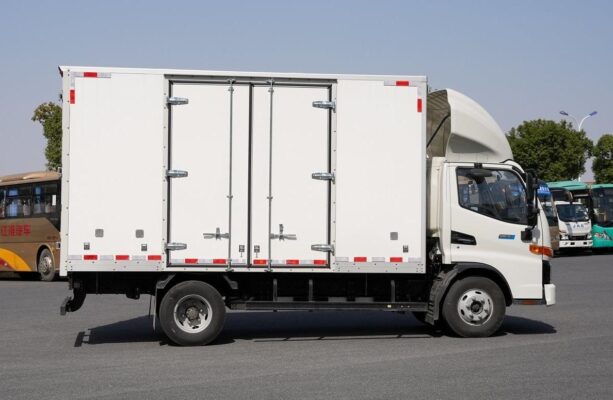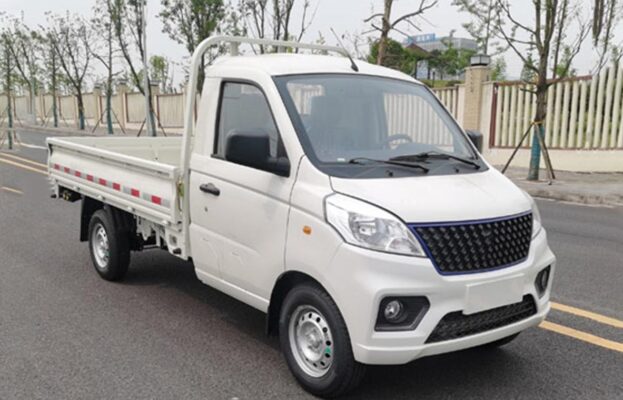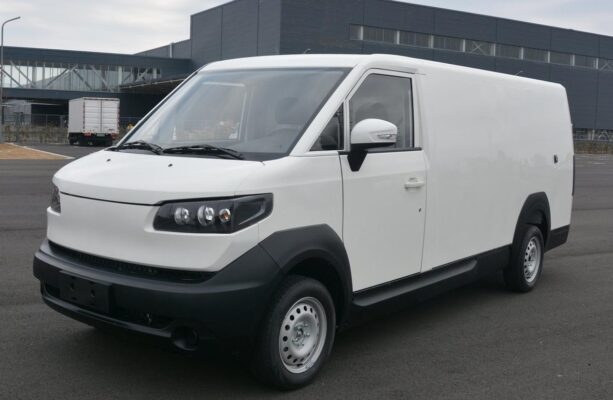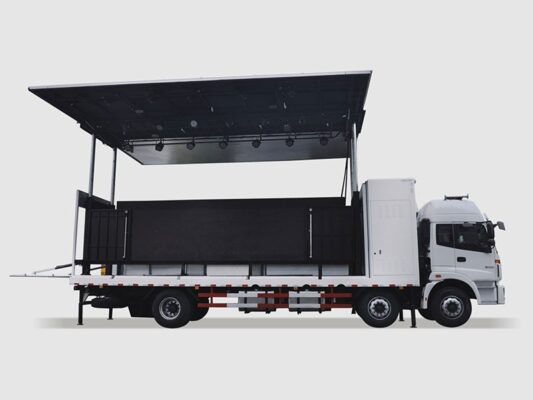ఎలక్ట్రిక్ ట్రక్ న్యూస్
How to Purchase Insurance for Pure Electric Vehicles Cost-effectively?
పోస్ట్ చేయబడింది ద్వారా ఎలక్ట్రిక్ ట్రక్కులు
As is widely known, pure electric vehicles hold an advantage in terms of vehicle usage costs compared to fuel vehicles, primarily because they do not have engines. అయితే, many vehicle owners have discovered that when it comes to purchasing insurance, pure electric vehicles of the same price tend to have higher insurance costs than their fuel counterparts. So, is the insurance for pure electric vehicles truly the same as that for fuel vehicles? And how can one go about purchasing insurance for pure electric vehicles in a cost-effective manner? With these questions in mind, let’s delve deeper.

● Is the Insurance for Pure Electric Vehicles the Same as That for Fuel Vehicles?
With the increasing popularity and advancement of pure electric vehicles, their presence in the market is now considerable. Regrettably, though, the domestic insurance industry has yet to introduce specific insurance types tailored exclusively for pure electric vehicles. As a result, the insurance coverage for pure electric vehicles largely resembles that of fuel vehicles.
To simplify, vehicle insurance encompasses compulsory traffic insurance and commercial insurance. Compulsory traffic insurance is a type of insurance mandated by national law, and vehicles lacking it are prohibited from being on the road. The cost is uniformly set at a national standard. For households with fewer than 6 seats, it amounts to 950 yuan per year, while for those with 6 seats or more, it is 1100 yuan per year. Commercial insurance builds upon compulsory traffic insurance to offer an additional layer of protection and includes various options such as vehicle damage insurance, third-party liability insurance, theft insurance, vehicle scratch insurance, spontaneous combustion insurance, and no-deductible insurance, among others.
The amount of insurance cost is determined by the premiums of the selected insurance types and the vehicle’s price. Taking vehicle damage insurance within commercial insurance as an example, which is a common choice for many vehicle owners, the premium calculation method is as follows: basic premium + vehicle price × rate. While the basic premium and rate are stipulated, the determination of this “vehicle price” becomes a crucial factor. Currently, in most cases, this “vehicle price” is calculated based on the pre-subsidy price. అయితే, in certain regions, insurance companies directly use the post-subsidy price for calculation. The specific calculation standard still requires consultation with the local insurance company. Nevertheless, given that the subsidy amount in 2019 was already relatively small, even if the premium for vehicle damage insurance is computed based on the pre-subsidy price, the resulting price difference is not likely to be substantial. Once the new energy subsidies are completely phased out, this issue will naturally cease to exist.
Let’s elaborate on this further. The determination of the “vehicle price” has a significant impact on the calculation of insurance premiums. Different calculation methods can lead to variations in the final cost. This aspect requires vehicle owners to have a clear understanding when choosing insurance to ensure they make informed decisions based on their specific circumstances and local insurance policies.

● Do We Need to Purchase Water Immersion Insurance and Spontaneous Combustion Insurance?
Many people assume that purchasing the corresponding insurance types guarantees compensation. In reality, this is not always the case. For pure electric vehicles, water immersion insurance is essentially unnecessary. The full name of water immersion insurance is “Special Loss Insurance for Engines”. Since pure electric vehicles do not have engines, purchasing this type of insurance proves futile and ineffective.
And some might wonder, what if a pure electric vehicle is submerged in water and malfunctions? According to the regulations of vehicle damage insurance, vehicle losses resulting from natural disasters such as rainstorms and floods should fall within the compensation scope of commercial vehicle damage insurance. ఉదాహరణకు, if the battery encounters problems after being submerged, a claim can be filed through vehicle damage insurance. అయితే, there exists a challenge in claiming compensation, as it often becomes a matter of determining whether it’s a battery quality issue or a pure accident. Consequently, when it comes to battery-related damages, disputes frequently arise.
In recent years, news of spontaneous combustion of pure electric vehicles has consistently garnered significant attention. But in truth, traditional fuel vehicles can also spontaneously combust; it’s just that such incidents have not been overly magnified. మొత్తంమీద, spontaneous combustion is indeed a low-probability event. Of course, purchasing spontaneous combustion insurance undoubtedly provides an added sense of security. After all, the premium for spontaneous combustion insurance is not exorbitant. Nevertheless, there are also challenges associated with claiming compensation for spontaneous combustion insurance. This hinges on whether the cause of the spontaneous combustion of the pure electric vehicle is attributed to a battery quality issue or a non-quality issue.
If the spontaneous combustion is a result of the battery’s inherent quality and is still within the warranty period, then the manufacturer bears the responsibility for compensating all losses from the spontaneous combustion incident, and the insurance company will not voluntarily assume the liability. If it is not a quality-related issue, the insurance company should compensate based on the assessment results and the investigation of the accident scene. అయితే, this process is typically complex and cumbersome, making the claiming of compensation a more arduous task.

● How to Purchase Insurance for Pure Electric Vehicles?
Firstly, compulsory traffic insurance is a must. Given the limited compensation amount and scope of compulsory traffic insurance, purchasing commercial insurance becomes highly necessary. Then, how should one make choices among the various commercial insurance types?
Generally speaking, vehicle damage insurance and third-party liability insurance within commercial insurance are essential purchases. Third-party liability insurance collects premiums based on different compensation amounts. A commonly chosen option is a compensation amount of 500,000 yuan. After acquiring these two primary insurances, other supplementary insurances can be considered. ఉదాహరణకు, with no-deductible special insurance, once this type of insurance is in place, the portion that would otherwise be borne by the vehicle owner for compensation can be covered by the insurance company. Regarding specific choices, it might be prudent to decide based on individual actual circumstances.
If you are an economical vehicle owner with an excellent driving record and a favorable driving environment, it is recommended to purchase compulsory traffic insurance, vehicle damage insurance, third-party liability insurance, spontaneous combustion insurance, and no-deductible insurance. If you feel this is insufficient or have additional concerns, you may opt to purchase more insurance types. In addition to compulsory traffic insurance, vehicle damage insurance, third-party liability insurance, spontaneous combustion insurance, and no-deductible insurance, you could include vehicle scratch insurance, passenger liability insurance, theft insurance, and so forth.
It should be noted that typically, the first-time insurance purchase for a new vehicle is coordinated by the 4S store and underwritten by the designated insurance company, and it often constitutes comprehensive insurance.

● Conclusion:
The selection and purchase of insurance for pure electric vehicles are not overly complex and are not significantly different from those for fuel vehicles. అయితే, due to the unique characteristics of pure electric vehicles, the process of and claiming compensation might be slightly more challenging compared to fuel vehicles. Therefore, when purchasing insurance, it is advisable to consult the insurance company extensively to clearly understand the underwriting content and claim compensation scope. Naturally, it is also hoped that the insurance industry can introduce exclusive insurance types for pure electric vehicles at the earliest possible time, which would be more conducive to the healthy development of the pure electric vehicle market.
In summary, while purchasing insurance for pure electric vehicles requires careful consideration and understanding of the various options available, by doing so, vehicle owners can ensure they have adequate coverage and protection while also optimizing costs. A well-informed decision based on individual needs and circumstances is key to a successful insurance purchase for pure electric vehicles.